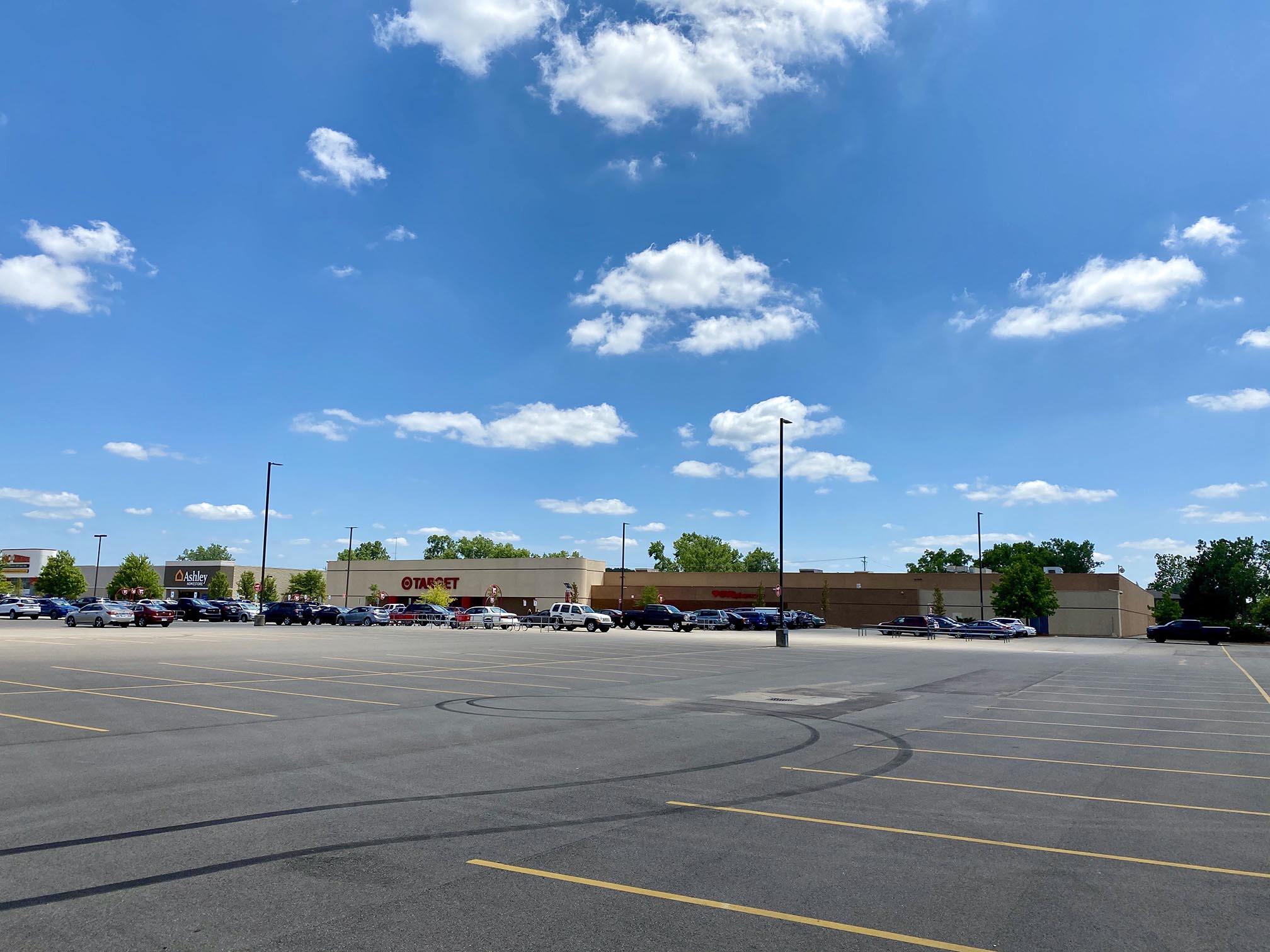It’s hard not to read those words and hear R.E.M. front man Michael Stipe’s voice. It’s also hard to realize there will be no “getting back to normal,” but here we are. I’m here to tell you though, this isn’t all bad. Yes, this virus has claimed thousands of lives and left many families with one (or more) seats empty around the table. It would be insensitive and cruel not to acknowledge and empathize this fact. It’s also led to the highest unemployment rate since the Great Depression with millions of people worried about their economic future, including hundreds of thousands of small business owners who’ve risked their life savings to live the American Dream. ALL of this sucks. HARD. But in times of rough waters, I’m the type of person not to curse the storm, but to adjust to the changing winds (but seriously, fuck this storm.)
In that light, I want to share what I see are the emerging opportunities for those of us who live and breathe small business development, downtowns, and real estate redevelopment.
Retail
This seems kind of counterintuitive in a down economy, but hear me out. In a recent survey of small businesses conducted by Main Street America, since the outbreak, found that nearly two-thirds of small businesses don’t have a selling function on their website, or that they DON’T EVEN HAVE HAVE A WEBSITE. I’ll repeat that: TWO THIRDS OF SMALL BUSINESSES IN OUR DOWNTOWNS ARE NOT SELLING ONLINE. People are more than willing to shop local. Especially, Generation X and Millennials. But if your brick and mortar business doesn’t offer the ability for your customers to support your business when the “open” sign isn’t on, you are giving them permission to shop online with someone else. These same business owners (shockingly enough) are seeing a decrease of over 75% in sales during this time. If you can’t be bothered to figure out how to do a website that sells your product when you’re not physically in your store in the year 2020, maybe you shouldn’t be in business by the year 2021. Just because these businesses aren’t able to sell, doesn’t necessarily mean what they’re selling isn’t in demand. If they die, this will create opportunities for new businesses who are willing to adapt to customer preferences, like websites and staying open later. The lesson here isn’t “small business is dead,” it’s “dinosaurs go extinct.”
Real Estate Ownership
In the coming shit storm, thousands of potential bankruptcies will become a glut of bank-owned property. This has the potential to make the Great Recession of 2006-2012 look like a birthday party. The last thing banks want is to take control of property and manage it. They suck at it and they know it. Real estate stands a good chance of declining in value based on the banks’ willingness to unload it combined with being dependent on retail sales, which in many markets have tanked. This will open up the potential of a lot more buildings and property to be purchased. Tough economic times may also force that third-generation property owner who thinks the building is worth a million dollars (when it’s actually more like $100,000) finally look to unload it to get cash. Groups who want to leverage the situation should look to join forces in order to stockpile property to be controlled for future redevelopment. The largest hurdle in the redevelopment of a downtown is often one (or a small handful of) property owner(s) who don’t want to play ball. This may be the once-in-a-lifetime opportunity to gain control of a building or property.
Real Estate Management
If you are lucky enough to own a property but lost a retail tenant, especially due to poor business practices (like a lack of online selling or later business hours) you have the opportunity to influence these behaviors. As my good friend Ben Muldrow of Arnett Muldrow and Associates has pointed out during one of our many conversations, there is no reason downtown property owners can’t offer “discounts” to business owners who follow best practices, like having a website or staying open until 7pm. This discounted rate would likely just be the normal rate and a higher rate would be charged as a premium to account for the higher risk of failure for those who don’t use those practices. There’s a great line often attributed to John Wayne, but is actually from the movie Jackie Brown, “This life’s hard man, but it’s harder if you’re stupid.” Think of it as a shitty business owner tax. You’re a bad business owner? Well, you pay extra. These types of commitments (common hours and days of operation) for retailers are often enforced in shopping centers and malls all over the country. The drastic changes this virus has brought to our shopping habits can also be used as a force, and justification, for making these changes to our respective property management techniques. The key to success though, will be the adoption of a core group of property owners in a downtown and enforcement of the lease agreement conditions. It doesn’t take a lot of courage to do this, just applying common sense and standards that are seen in other areas.
Public Space + Parking
One of the best things to come out of this pandemic has been the openness of so many people to rethink parking, especially to benefit restaurants. There’s about a billion reasons to rethink parking, but leaders and many business people have refused to hear them. Until now. In light of the need for increased social distancing, we’re seeing a drastic reduction, either by government mandate or customer preference, in capacity. The most logical answer given the warmer summer weather is to allow restaurants to spill out onto the sidewalks and even parking spaces in front of these businesses. In my opinion, sidewalks are, and have been, a no-brainer. Do it and do it now. The harder conversation has been about parking. Some cities, like Tampa, have closed entire streets to help restaurants. But let’s stick with parking spaces right now. If there is a parallel parking spot in front of a restaurant, that one car may provide anywhere from 1-4 patrons (assuming the car that’s parked is intending to go to the restaurant, which it might not be.) That same space could allow for two socially distanced tables of four. This could seat anywhere from 2-8 people. Now, this one space where at a minimum has one person parking, who may or may not be going to this restaurant, now magically has the ability to at least double the number of people served by that space, AND is guaranteed to be dedicated to that restaurant. Add the space next to that and the number doubles again. Where the conversation gets even more real is when we suggest looking at shutting down the street. There are several factors there, chiefly local control followed by local political will. State trunk lines will be far more difficult than local roads. But at this point, no stone should go unturned.
Downtown Organizations
This one is the hardest for me as this will be the most drastic and painful of changes. Virtually every downtown organization will be financially hit by this. Whether these groups get their revenue from tax increment financing, special assessment, sales tax, bed tax, donations, or just revenue from events they produce, they are going to see either a direct drop or be cut in a budgeting process. Even the most resilient form of funding, special assessments (or a small tax levied for the specific task of funding improvements), will see significant political pressure to reduce or eliminate in the name of providing relief for property and business owners. (If you’re fortunate enough to have a special assessment, stay as strong as possible during the political fight.) For many downtown organizations in mid-size and small communities, there is usually a decent chunk of revenue provided by their local government. They should be prepared for that funding to be at least cut in half, if not eliminated entirely. With increased social distancing and federal guidelines still banning group gatherings in many states, major events, that often produce half a year’s income or more, will be gone. Those who rely on one event will be done. For years, Main Street organizations in particular have complained that they’re only seen as party planners. These next six months will prove whether your organization is a party planner or an economic development organization. Those who will survive will have done so because they were able to successfully communicate and prove their economic value to their funding partners. But even they will likely take a hit, but not anywhere near as bad.
So, where’s the opportunity? The opportunity will be like many businesses, in the diversification of revenue. How does that happen? Painfully to start. Putting all of your eggs in one revenue basket isn’t just unwise, it’s potentially deadly for your organization. Downtown organizations have several relatively unexplored areas of revenue. These are: property development, rental income, fee for service, and special assessments. In my next article I will go into these areas in more detail. But for now, know there are other ways for downtown organizations to fulfill their mission while diversifying your revenue. In the meantime, be an advocate for your businesses and property owners. Help them communicate to a larger audience of their availability. Help property owners fill vacancies or sell their properties. Do everything you can to be of help. Now is the time to prove how valuable you can be.
The changes we’re experiencing, and will continue to experience, will be the most challenging and difficult any of us have ever faced in our professional lives. We will see businesses and organizations we love go out of business. But these awful situations will give way to opportunity. Be ready to seize the opportunity.






